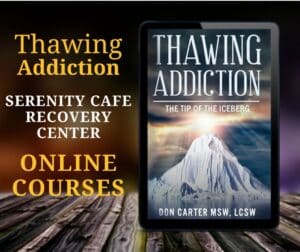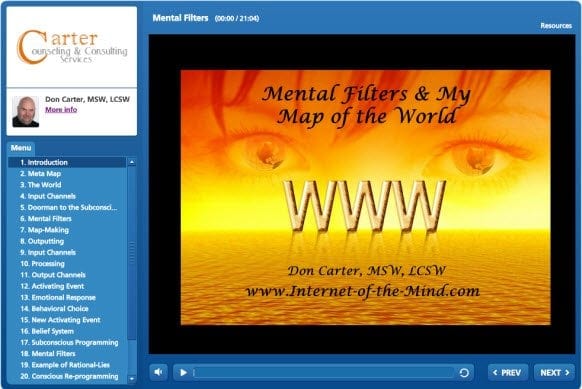
Alcoholism Signs and Symptoms
Alcoholism signs and symptoms are well documented these days. However, most people still do not know what they are. There’s a good reason for that – It’s the “It will never happen to me” syndrome. For anyone facing addiction to drinking, there are alcohol treatment centers available to help overcome the grips of alcoholism, find sobriety, and live a productive and rewarding life.
Alcoholism Signs – Hitting Bottom

- Getting a third DWI charge – a felony in most states
- Being served divorce papers
- Lost or Losing a career
- Alcohol involved motor vehicle accidents
- Illnesses secondary to alcoholism – Hepatitis, Cirrhosis, or pancreatitis, gastritis, heart disease, etc.
- The collapse of the alibi system – Denial no longer works, there is no pretending anymore.
- Emotional Disorders secondary to the alcoholism – Anxiety, Depression, suicide attempts
Do you see a common thread in the list above? That’s right – these are late-stage alcoholism signs. There are very clear alcoholism signs in the early and middle stages. But not until I or someone I care about is touched personally by this illness do I sit down and do my homework. Even then I will have to go through an acceptance process – also known as the grief process – before I can fully accept that this is really happening to me!
To anyone with good judgment, the question has to be “Why couldn’t they see it earlier and stop drinking?” It’s a very good question – In fact, the answer is in the question… By the time they reach the late stages of their addiction they can’t stop drinking for long and they can’t emotionally afford to “see” that – it would be too devastating. So their subconscious defense mechanisms “protects” the alcoholic from the truth, thereby enabling him or her to continue drinking. Check out Angie’s free presentation on the Characteristics of Denial below to learn more about it…
Alcoholism Signs – Characteristics of Denial
It seems to be a feature of addiction that the person is unable to grasp the full extent of their problem until he/she absolutely must. Most people who have recovered from an addiction will tell you they had to “hit bottom” or “get a wake-up call” before they could give any serious consideration to their alcoholism signs and symptoms.
They have impaired judgment and – by definition – impaired judgment doesn’t know it’s impaired! The real shame is that most people don’t usually see the problem until it is in the late stages. Early Recovery Can Be Difficult Though not without its challenges, it’s much easier to treat in the early stages. Now, remember… most people who come to counseling are in pain and they all usually want the same thing – comfort and relief. But they do not necessarily want to know what’s bothering them. This is especially true of people with addictions.
A big part of accepting this disease is being able to cope with cravings and withdrawal. There are new tools available to help with that such as the promising success demonstrated in current brainwave entrainment research in reducing Post-Acute Withdrawal Syndrome. With tools such as these, combined with a traditional 12-step recovery program, recovering people have a great chance of breaking through denial and achieving long-term recovery.
Alcoholism Signs – Denial & Delusion
The subconscious mind of an addict/alcoholic knows how important the addiction has become so it protects their ability to drink, self-sabotage, eat too much, etc. The protection is in the form of generalizations, deletions, and distortions…aka DENIAL – a hallmark alcoholism sign in itself. Take a look at the free Mental Filters presentation below to see the complete picture of how this delusion reality is created by those characteristics of denial…
Below are some examples of the psychological mind games that create a delusional reality in which it is ok to keep drinking even with tons of evidence to the contrary:
- Generalizations
- “I can quit anytime I want”
- “It’s not that bad”
- “I didn’t eat enough before I went out”
- “I’ve quit before, I can do it again!”
- Deletions
- Euphoric Recall – Remembering things as good when really they were not.
- Repression – Subconscious mind automatically “forgets” bad things that happened the night before even though the wife does not.
- Blackouts – Periods of amnesia… sometime caused by the alcohol other times by the mind – repression
- Distortions
- Rationalizations – Excuse making
- Minimizing – I’m not that bad, “Kinda, sorta, maybe, a little bit – but not really”
- Projections – Blaming others…spouse, boss, “that cop was out to get me”
- Intellectualization – Analyzing, theorizing, “staying in the thinking to avoid the feelings”
- Diversion Tactics – Change the subject, laugh it off, get angry
The alcoholic or addict really believes these thoughts that create a reality where it is okay to drink in the presence of overwhelming evidence that it’s NOT okay!
Even after hitting bottom and reaching out for help this delusional system is still intact… Read this article on Zebra’s & Giraffes to learn how/why alcoholics and addicts seem to sabotage themselves.






